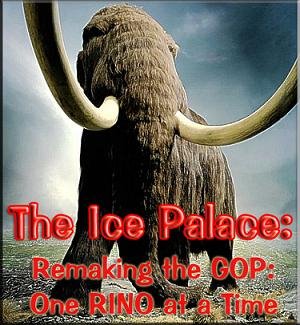Merci, Monsieur Justice Kennedy! You just made us part of the European community..
Read the whole story: © 2005 WorldNetDaily.com <> WASHINGTON – In its stunning 5-4 ruling banning states from executing murderers who committed their crimes before they turned 18, the U.S. Supreme Court majority openly cited a United Nations convention, an international treaty and the laws of the United Kingdom in arriving at its sweeping decision. (ed: Hmmm... somehow the U.S. Constitution and U.S. history of jurisprudence in the matter appears conspicuously missing)
The decision overturns a 1989 high court ruling, throws out the death sentences of 72 murderers who committed their crimes as juveniles and bars states from seeking to execute others in the future. Nineteen states had allowed death sentences for killers who committed their crimes when they were under 18.
"The age of 18 is the point where society draws the line for many purposes between childhood and adulthood. It is, we conclude, the age at which the line for death eligibility ought to rest," Kennedy wrote.
In an angry dissent, Justice Antonin Scalia disputed that a "national consensus" exists and said the majority opinion was based on the "flimsiest of grounds." The appropriateness of capital punishment should be determined by individual states, not "the subjective views of five members of this court and like-minded foreigners," he wrote. (ed: Woohoo Antonin!)
Chief Justice William H. Rehnquist and Justice Clarence Thomas joined Scalia in seeking to uphold the executions.
In a scathing dissent, Scalia found it curious that the court would overrule the will of the American people in 19 states, but lean heavily on the opinions of foreigners.
"Though the views of our own citizens are essentially irrelevant to the Court's decision today, the views of other countries and the so-called international community take center stage," he wrote.
The majority begins its ruling by noting that "Article 37 of the United Nations Convention on the Rights of the Child, entered into force Sept. 2, 1990, which every country in the world has ratified save for the United States and Somalia, contains an express prohibition on capital punishment for crimes committed by juveniles under 18."
The court also mentioned the International Covenant on Civil and Political Rights, which the U.S. Senate, Scalia pointed out, ratified he Senate "only subject to a reservation that reads: 'The United States reserves the right, subject to its Constitutional restraints, to impose capital punishment on any person (other than a pregnant woman) duly convicted under existing or future laws permitting the imposition of capital punishment, including such punishment for crime committed by persons below eighteen years of age."
Scalia writes:
"Unless the Court has added to its arsenal the power to join and ratify treaties on behalf of the United States, I cannot see how this evidence favors, rather than refutes, its position," wrote Scalia. "That the Senate and the President – those actors our Constitution empowers to enter into treaties ... have declined to join and ratify treaties prohibiting execution of under-18 offenders can only suggest that our country has either not reached a national consensus on the question, or has reached a consensus contrary to what the Court announces."
And.....
"More fundamentally, however, the basic premise of the Court's argument – that American law should conform to the laws of the rest of the world – ought to be rejected out of hand,"Scalia accused his colleagues in the majority of picking and choosing those foreign laws and rulings that justify the personal views of the justices themselves, which are then imposed on the American people without their consent. He cited ruling after ruling in which the court has pronounced laws sound and hailed them "unique to American jurisprudence."
"The Court has been oblivious to the views of other countries when deciding how to interpret our Constitution's requirement that "Congress shall make no law respecting an establishment of religion," he wrote. "Most other countries – including those committed to religious neutrality – do not insist on the degree of separation between church and state that this Court requires."
He pointed out that countries such as the Netherlands, Germany, and Australia allow direct government funding of religious schools on the ground that "the state can only be truly neutral between secular and religious perspectives if it does not dominate the provision of so key a service as education, and makes it possible for people to exercise their right of religious expression within the context of public funding."
"And let us not forget the Court's abortion jurisprudence, which makes us one of only six countries that allow abortion on demand until the point of viability," he added.
He found it most troubling that his colleagues cited the laws of the United Kingdom, which, he said, has recently submitted to "the jurisprudence of European courts dominated by continental jurists – a legal, political, and social culture quite different from our own."
"The Court should either profess its willingness to reconsider all these matters in light of the views of foreigners, or else it should cease putting forth foreigners' views as part of the reasoned basis of its decisions," he wrote. "To invoke alien law when it agrees with one's own thinking, and ignore it otherwise, is not reasoned decision-making, but sophistry."
The Ice Palace stands firmly in Justice Scalia's corner on this one. When a majority of the Supreme Court bases their ruling on foreign law, are we truly living in a land where we are governed by the consent of the governed? If there was ever a case of a "Constitutional Crisis", this is it, folks. One could only hope that these five elitist blockheads retire soon, so they can be replaced by five people who bear some resemblance to sanity.
-Psycmeistr-















|